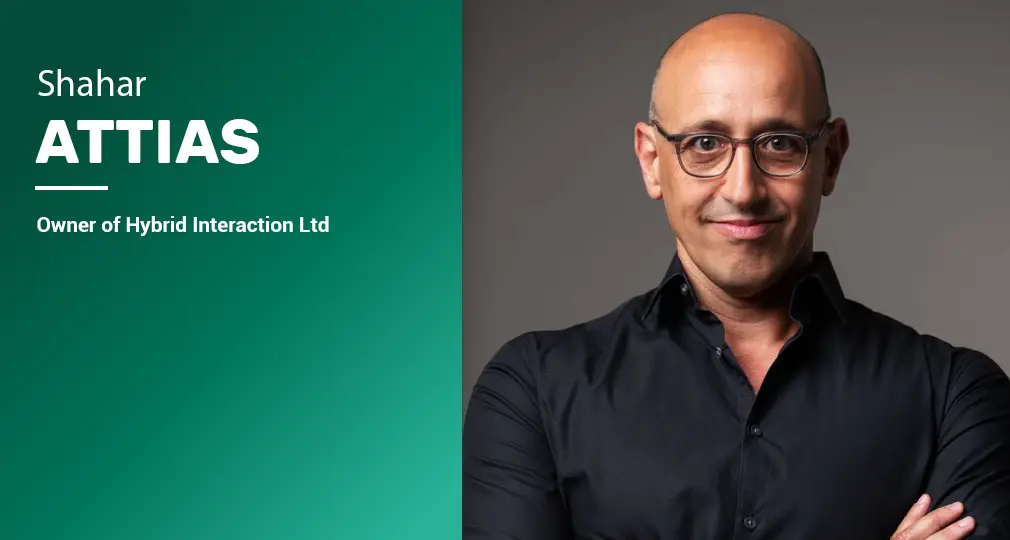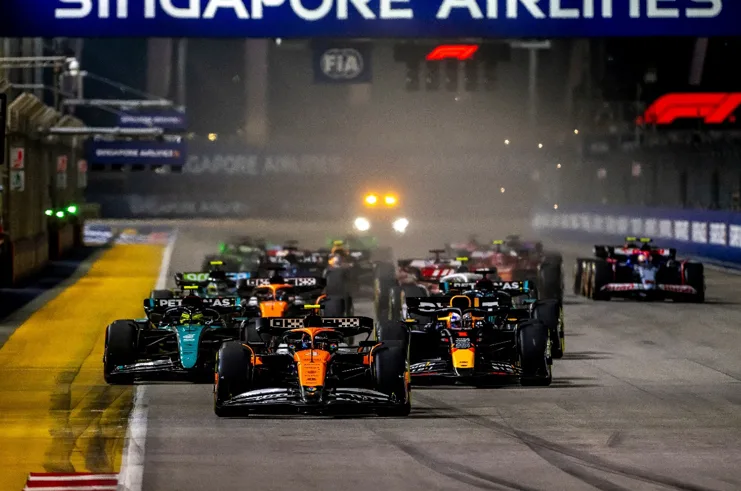The coronavirus pandemic has practically suspended the work of land-based casinos but has made it possible for online gambling platforms to develop, according to up-to-date gambling news. This, in turn, has led to the appearance of certain trends for business, including regulatory restrictions in different countries.
At the same time, the law regulating the operation of gambling companies in Ukraine was recently provided for the legal activities of online casinos. And it is already known that this direction has interested a number of operators. To discuss these and other important aspects, we have reached Shahar Attias, owner of Hybrid Interaction Ltd.
Shahar, many experts believe that online gambling has developed better in 2020 than operators expected at the end of last year, before the coronavirus crisis. At the same time, not all companies were ready to grow so quickly. Can you tell us about the main challenges faced by online operators in various countries this year?
Obviously, 2020 hasn’t been an ordinary year. We have not traveled freely and are still living alongside a global pandemic. And this has significantly influenced people’s behavior. The online gambling industry has gained quite a unique experience from the coronavirus, and it depends on the field in which the company is engaged. If your work, for instance, is connected with sports, you had to take a break. Many companies even closed their businesses because they had no activity, and even if they remained in the market, their volumes decreased significantly.
If you do not work online, but only offline, then your experience is limited to quarantine, lockdown, and travel ban, which clearly have had a tremendous negative impact on your work.
On the other hand, companies that own online casinos have seen a huge increase in activity, with indicators changing dramatically during the initial period of February to July. There was a complete change of all work in these companies. For example, a company with XX employees had a certain turnover, yet within 3 or 4 months, the same operator suddenly noticed that while the staff remained the same, the turnover could have increased two- or three-times fold, the profit grew as well and, suddenly, additional resources were required. And speaking of resources, development companies, on the one hand, have had fewer people in the office and have witnessed reduced efficiency, while, at the same time, they have gained access to more workers due to changes in business and the emergence of remote work.
In general, I have to say that the biggest impact was on the marketing side of the business. Operators’ activity has increased, which requires more work in the areas of communications and access to a larger number of technical solutions. They are looking for the best platforms that can provide the solutions they need because of the intense increase in activity volumes.
From the technical point of view, how do online operators need to change in order to continue growing in 2021?
This is a very good question, as the world has changed and is moving on. I think companies will make effort to keep players from leaving. Let’s review this “new normal” situation: we all know that customer acquisition is key, and if you spend a lot of money on advertising, you will eventually get more registrations and, proportionally, a larger number of new players. But there’s a limitation, which is especially true for regulated markets. For example, if you operate in the UK market, you cannot simply start attracting players from Poland or the Czech Republic, as this is prohibited. Therefore, the very first and smartest way to increase your activity would be reaching out to existing players. We can see how more and more operators are starting to think about how they can optimize themselves in order to make sure that players wouldn’t have any reason to leave them.
Usually, players are engaged with five or six gambling operators concurrently. Consequently, companies constantly compete with each other, as they strive to ensure that customers would allocate funds to their products; we call that “wallet share”. With modern technologies, they do that by taking advantage of exciting new features through real-time automation. Previously, the concept was “responsive”: today, the person plays, and the next day the company looks at what he/she has played and afterward analyzes what tool to use so that the player will return the next day/week. Nowadays, companies have started searching for ways to find out about the player’s actions right now, while the player is currently playing. It’s even more meaningful in some countries, for example, in Sweden, where operators can’t communicate with players when they aren’t logged in. Therefore, the business is now focused on developing tools to track player activity as it happens. We are talking about the optimization of push notifications, pop-ups, and the provision of bonuses. Combined with all of these tools, real-time analysis can give not only a complete and logical portrait of the player even before he/she leaves the game – but also an ability to act upon your findings, right now. There are many interesting tools in this direction, about which we can talk for many more hours.
We see regulators imposing restrictions on activity, especially in marketing. What difficulties might online gambling face the next year and how can this hinder the industry’s development on a global scale?
One of the negative factors of the coronavirus is that people stay at home, and some of them play more than they need to. This contributed to an increase in problem gambling. Governments and regulators around the world are trying to sort out the situation by offering various ways on how to identify and help such players (minor or problem). Officials are forcing operators to apply a larger number of restrictions and offer more options for players to stop playing. These measures are aimed at reducing activity. For instance, in the past, asking the player to provide a driver’s license used to be considered as a very strict requirement, but it is becoming more common. Another example is the UK where VIP managers are required to indicate their names and take personal ownership over player-marketing efforts. As such, now not only the operator, but also the employee is individually responsible in case of over-marketing to the players, and the regulator can come and report the improper performance of such work instead of the standard fine. And this practice is also becoming common. But I can say with confidence that I accept this and see a common benefit in business adaptation at the highest level when people are helped not to get into troubles that are difficult to solve. And other operators will also support this policy because no one wants to work with problem clients. If, at the beginning of the month, someone says that they want to spend €50 on movies, €200 on restaurants, and €300 on online gambling, then that is all I need. I do not need €301; I want €300 to be spent on my website but no more. Instead of increasing the player’s value, we should look at increasing the wallet-share, that is, to be sure that we will receive the most of that €300 that the player wants to spend on online gambling.
The gambling business, including the online vertical, has been recently legalized in Ukraine. The licensing process is scheduled to begin before the end of 2020 or early 2021. How interesting is the Ukrainian market for international operators now and what exactly attracts them?
The Ukrainian market is very interesting at the business level – it is a big country, larger than Poland, Latvia, Spain, and some other leading European states. All these markets are also interesting in a global sense, some of them are regulated and generate large revenues for operators, so, clearly, the Ukraine is going to be a hit! And there is also a highly developed gambling culture, especially in regards to sports betting. Try talking to Ukrainians about their football teams and end up losing a lot of money… This culture is developed, but in order to see it, you need to work directly with it. It is also a country that is technologically advanced. It is much easier to conduct transactions in Kyiv than in most of the big cities in South America. For example, in Ukraine, many more transactions go through the Apple Watch than in the majority of Western World countries. There is culture, there is technology, and there is size. Gambling companies have been working in Ukraine even before legalization, so we know the portrait of a player, how much money he/she spends on gambling. All in all, this is a very good market.
How much will it cost to enter the Ukrainian market? And how long will it take for operators to cover the costs?
Licenses are quite expensive, for example, in order to get a bookmaker license, it will be necessary to pay $1 million. These are rather big sums. Compared to the USA, they are, of course, lower, but the Ukrainian market is also smaller. Licenses cost a lot, but in order to enter the Ukrainian market, you need to compete with already existing large operators such as Parimatch, Evoplay, Pin-Up. All these brands exist, work, and accept funds from Ukrainian players. And in order for the operator’s advertising to be able to do them one better, the company will need to spend much more. If you do not have $5-7 million to invest in the first year and a half, then it is better to do yourself a favor and abandon the Ukrainian market.
According to rumors, large poker rooms like PokerStars are interested in the Ukrainian market. In your opinion, what needs to be done to make Ukraine appear in the development strategies of large operators in the next few years?
It is a good question because this topic is constantly discussed in the industry. In my opinion, the government needs to do two things to attract large operators. The first has already been done – the country’s authorities have created a fixed structure of regulated online gambling with transparent and understandable rules. The second is stability. If we look at the Swedish market, it seems that all the actions of their government are aimed at getting operators out of the market on the second day of work. Every month, they fine, punish, revoke the licenses, and additionally dictate conditions to the business that are not indicated anywhere. If you want to change something, then announce it, open it up for a discussion, and if the licensed operators agree with this, then implement it in the next few months. Stability is very important; it will allow large companies to implement strategies to promote the market.
Many IT specialists working in Ukraine create iGaming products for other countries. According to your forecasts, can Ukraine succeed in the development of products for iGaming? And what is needed for this?
First, I do not see any difficulties that Ukraine may face. I think that the country will succeed. Everyone knows that Kyiv, Odesa, and other cities are hubs for outsourcing development, especially in iGaming. And everyone knows about the quality of Ukrainian developers. The question here is not about quality, but what they will be focused on. This leads me to think about the complexities that are in marketing. For example, as I have said earlier, we are talking about real-time marketing automation, the ability to make a product that is different from others. If we look at most of the online casinos, we see the same picture – some with penguins and others with sombreros but the product remains the same. Therefore, developments should be different, updated, and innovative. Yes, developers will do what is specified in their assignment and will complete the task on time and efficiently. But you need to have new concepts to revolutionize a product that will remain interesting for a long time.
Read more: Best iGaming Aggregators












